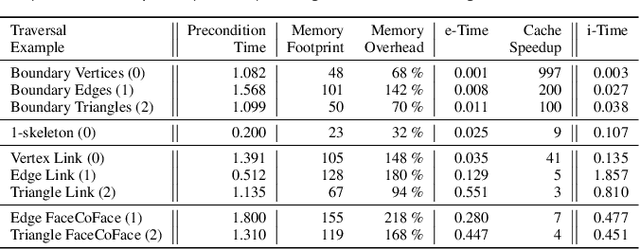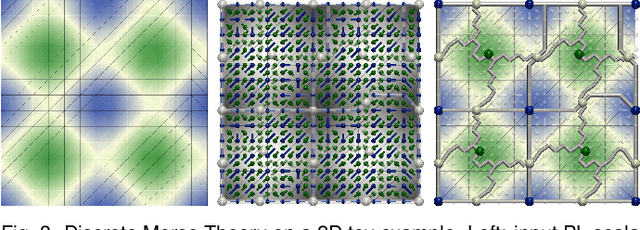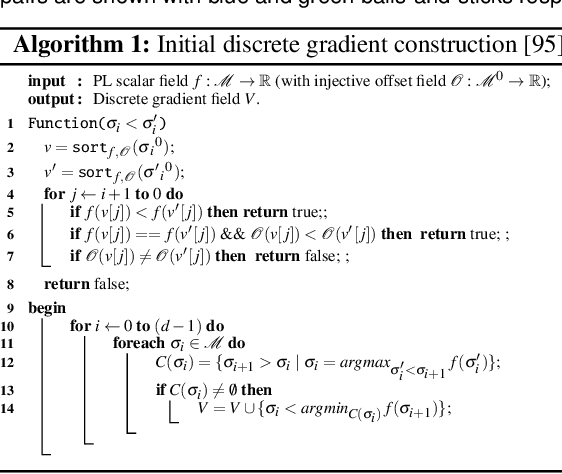Michael Michaux
The Topology ToolKit
May 22, 2018



Abstract:This system paper presents the Topology ToolKit (TTK), a software platform designed for topological data analysis in scientific visualization. TTK provides a unified, generic, efficient, and robust implementation of key algorithms for the topological analysis of scalar data, including: critical points, integral lines, persistence diagrams, persistence curves, merge trees, contour trees, Morse-Smale complexes, fiber surfaces, continuous scatterplots, Jacobi sets, Reeb spaces, and more. TTK is easily accessible to end users due to a tight integration with ParaView. It is also easily accessible to developers through a variety of bindings (Python, VTK/C++) for fast prototyping or through direct, dependence-free, C++, to ease integration into pre-existing complex systems. While developing TTK, we faced several algorithmic and software engineering challenges, which we document in this paper. In particular, we present an algorithm for the construction of a discrete gradient that complies to the critical points extracted in the piecewise-linear setting. This algorithm guarantees a combinatorial consistency across the topological abstractions supported by TTK, and importantly, a unified implementation of topological data simplification for multi-scale exploration and analysis. We also present a cached triangulation data structure, that supports time efficient and generic traversals, which self-adjusts its memory usage on demand for input simplicial meshes and which implicitly emulates a triangulation for regular grids with no memory overhead. Finally, we describe an original software architecture, which guarantees memory efficient and direct accesses to TTK features, while still allowing for researchers powerful and easy bindings and extensions. TTK is open source (BSD license) and its code, online documentation and video tutorials are available on TTK's website.
 Add to Chrome
Add to Chrome Add to Firefox
Add to Firefox Add to Edge
Add to Edge